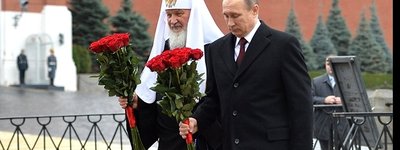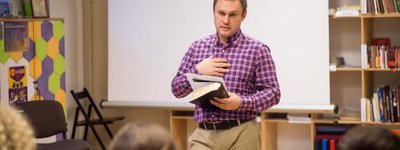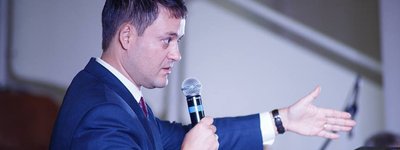The Moscow mystique meets the Maidan
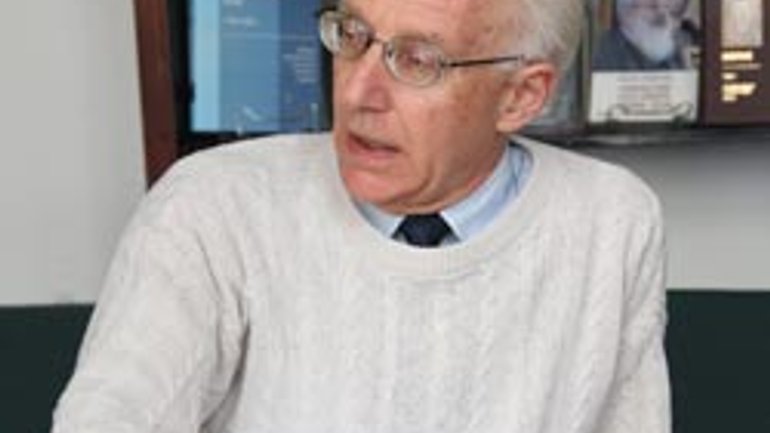
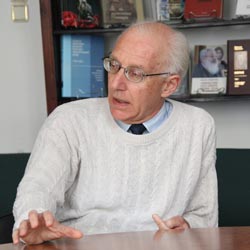 Russophilia has a long history in the West. It is not to be confused with a healthy admiration or love for all that is true, good, and beautiful in Russia and its culture. An uncritical adulation of all that is Russian, it is composed of fragmentary knowledge, fantasy, and willful ignorance. Its ecclesiastical variant has mesmerized Roman Catholics no less than Protestants. It enjoyed a golden age in the days of ecumenism and Ostpolitik in the 1960s and 1970s. It lives today.
Russophilia has a long history in the West. It is not to be confused with a healthy admiration or love for all that is true, good, and beautiful in Russia and its culture. An uncritical adulation of all that is Russian, it is composed of fragmentary knowledge, fantasy, and willful ignorance. Its ecclesiastical variant has mesmerized Roman Catholics no less than Protestants. It enjoyed a golden age in the days of ecumenism and Ostpolitik in the 1960s and 1970s. It lives today.
Two basic types of Western Christian are particularly prone to ecclesiastical russophilia. On the one hand are the ecumenists, who welcome every sign of a rapprochement with the Russian Orthodox Church. On the other hand are the traditionalists or “conservatives,” who see in Russian Orthodoxy a moral integrity that has been lost in Western Christianity and society. As Pope Francis noted in an interview on his flight back from Brazil in July 2013, the contrast between Eastern spirituality and Western materialism is summed up in the phrase “lux ex oriente, ex occidente luxus” – ‘light from the East, from the West -- luxury and extravagance.’ Consumerism and well-being, he said, have spiritually damaged Western society. (Moynihan Letter #94, “The Russians Are Coming”)
Both types of russophile are dazzled by the Byzantine-Slavic liturgy. In his in-flight interview, the pope praised the liturgy of the Orthodox Church, noting that “We have lost a bit the sense of adoration.” (ibid.) Of course, the pope knows from his boyhood experience assisting a Ukrainian Greek-Catholic priest in Argentina that the glorious liturgies of St. John Chrysostom and St. Basil are not exclusively Orthodox, but are shared by the Catholic Churches of the Byzantine rite.
Both ecumenists and traditionalists rightly honor the martyrdom of the Russian Church after 1917. But today’s Moscow Patriarchate owes its existence to Stalin’s decision to reinstate it in 1943, at the price of its complicity in Soviet foreign and domestic policy. Three years later, the Moscow Patriarchate collaborated with the Soviet secret police in destroying the Ukrainian Greek-Catholic Church. It has never publicly apologized. In fact, some of the noblest voices of Russian Orthodox conscience, like Fr. Gleb Yakunin, found little sympathy in the Muscovite hierarchy.
Naturally, it is not only russophiles who admire literary giants like Fyodor Dostoevsky and Lev Tolstoy, who explored the great questions of faith and humanity. During his in-flight interview, Pope Francis, referring to Dostoevsky, declared that “…I believe that for us all he must be an author to read and re-read, because he has wisdom…” The Russian spirit, the Eastern spirit – he continued -- will do us good. We need fresh air and light from East. (ibid.) One can only agree with this assessment. Those Ukrainians who look down on the classics of Russian culture cut themselves off from a major current of world civilization. But today’s Moscow Patriarchate can hardly hold itself out as the sole guardian and representative of Russian culture.
Finally, among many Catholics, the third prophecy of Fatima naturally plays a role, as both ecumenists and traditionalists await the conversion of Russia.
It is true that there is much in the Russian experience from which the West can learn. It was in Russia that the Christian heritage was most fully and savagely attacked, as the Bolsheviks combined Western Marxism with boorish Russian nihilism and despotism to attack the Orthodox Church and the very soul of their own culture -- not to mention that of the Ukrainians and other peoples of the empire. Several years ago, Russian Orthodox Patriarch Kirill (Gundyaev) gave a sermon in Rome warning the West not to take the road that Russia had attempted, of building a world without God. (ibid.)
But in a sense, Russia is ahead of the West. For while the West continues heedlessly on the road to secularization, Russia is experiencing a religious revival. In an address to the Russian delegation to the World Council of Churches meeting in South Korea last October 30, “The Voice of the Church Must be Prophetic,” Metropolitan Hilarion (Alfeyev) of Volokolamsk, who heads the ROC’s Department of External Church Relations, described the rebirth of Russian Orthodoxy. In 25 years, 25,000 churches have been restored. (ibid.) Of course, it is not only a matter of building churches, but of filling them. And statistics show a rise in religious affiliation among Russian youth, who after all represent the future: between 2003 and 2010, the number of agnostics or those of no religious confession declined from 25.5% to 16.4%, while the percentage of those adhering to the Orthodox Church rose from 64.5% to 74.8%. (Nadia M. Diuk, The Next Generation in Russia, Ukraine and Azerbaijan (2012), Appendix H7, p. 184.) Turning to the West, Metropolitan Hilarion noted with concern the advance of militant secularism, marked by the legislation of several European countries recognizing same-sex marriage. Some two weeks later, on November 12, the metropolitan met with Pope Francis at the Vatican. President Putin met with the Pope on November 25. (See Moynihan Letter #100, “Moscow Comes to Rome.”)
President Putin has championed a specifically Christian moral code. When he referred to God in his September 11, 2013 open letter to the American people about Syria, published in the “New York Times,” thoughtful Roman Catholics took note (see Moynihan Letter #94, cited above) Just over a week later, on September 19, Putin spoke at Valdai, Russia, calling on his people to forge a new national identity based on conservative and traditional values such as the Orthodox church, and warning that the West is facing a moral crisis. (ibid.) As historian Timothy Snyder has remarked, Mr. Putin has made homosexuality and same-sex marriage a leading theme of his criticism of the West. This theme harmonizes with Russia’s opposition to Ukrainian rapprochement with the European Union. An Association Agreement, Putin seems to be saying, would leave Ukraine defenseless before the gay lobby. Naturally, the “gay card” is persuasive with many Christian conservatives as well as ordinary orthodox Catholics. Pope Francis himself has not, after all, changed Catholic teaching on this issue, only drawing back from it in order to allow Catholics to better understand its basis. Much as Russia appeared in the nineteenth century to be a bastion of Christianity against the tide of French anti-clerical republicanism, so today both its political and its religious leaders are posing as defenders of Christian morality against European secularism. While Western liberals decry President Putin’s authoritarianism, many embattled Christians in the West welcome Russia’s support. After all, liberal Europe is practically de-Christianized, while America’s largely superficial Christian affiliation conceals widespread practical apostasy. It is precisely where democracy has advanced, in the West, that religion has declined. Moreover, liberal democracy carries with it the baggage of “free-market” capitalism, which encourages a consumerism that eats away at Christian morality in the wealthy countries of the North while spreading economic misery in the poor countries of the South. Putin’s anti-Western authoritarianism, it seems, defends traditional Christian values.
But as Robert Moynihan has pointed out, in its rapprochement with Catholics, Russia must still deal with the problem of Ukraine. The Russian Orthodox Church sees Ukraine as its own canonical territory and brands the Uniate Greek-Catholics as defectors. The alleged strife between Orthodox and Catholics in Ukraine, some say, is preventing a papal visit to Russia. Ironically, the day of Mr. Putin’s meeting with Pope Francis, November 25, is by the Julian calendar the day of St. Josaphat, a martyr for the 1596 union of the Orthodox of Ukraine and Belarus’ with the Church of Rome. Earlier that day, the Pope had met some 3,000 Ukrainian Greek-Catholic pilgrims who were in Rome for that occasion (ibid).
In fact, Russophile Roman Catholics seem to ignore the fact that the Russian Orthodox Church continues to view the 1596 Union of Brest as an aberration which justified the forcible 1946 “re-union” of the Ukrainian Greek-Catholics (prior to 1596 their predecessors had in fact been under the jurisdiction not of Moscow, but of Constantinople). To at least some leaders of the Russian Church, Ukraine’s Greek-Catholics are not legitimate.
This may have been among the reasons that a pastoral letter of one of the Greek-Catholic Church’s greatest leaders, Metropolitan Andrei Sheptytsky, has recently been banned in Russia. Entitled “Pravdyva Vira” (“The True Faith”), it was written in 1900, when Sheptytsky was still Bishop of Stanyslaviv, and addressed to the faithful of Bukovyna (then under Austrian rule). Republished as a booklet in Poland in 1990, the work has been added to Russia’s Federal List of Extremist Materials on October 4, 2013 (no. 2087).
Why is a 113- year-old pastoral letter written in antiquated Ukrainian considered extremist? Perhaps because it states the traditional view that the Catholic Church is the one true Church of Jesus Christ. Traditionalist Catholic Russophiles should take note.
Yet Sheptytsky was an ardent ecumenist. In his quest for a union of the Orthodox and Catholic Churches, he was instrumental in the founding, together with Exarch Leonid Fyodorov, of a Byzantine-rite Russian Catholic Church. That project, of course, is in disfavor in today’s Russia.
While neither traditional Catholic ecclesiology nor Catholic ecumenism is welcome in Russia, Ukraine is a favorable environment for both. The Greek-Catholic Church has not submitted to confessional relativism. Yet it has not ceased to seek dialogue with its Orthodox neighbors. With its tradition of cultural openness (evident in both Ukrainian Orthodox and Uniate historical attitudes to the Latin West), Ukraine is an appropriate “laboratory of ecumenism.” For its ecclesiastical culture is not Muscovite, but European.
And here the Western Russophile meets the Maidan. For as political commentator Mykola Riabchuk has observed, the ongoing demonstrations on Kyiv’s Maidan are not principally about material things like wages, trade deficits, or a higher standard of living. Rather, they are about moral values such as justice, dignity, and obedience to the just requirements of the law. In fact, these demonstrations, unlike some of their counter-parts in the West, have been marked by sobriety, discipline, and self-restraint. The inebriated were to be found on the pro-government side. At the same time, it appears that the Maidan is not about becoming like contemporary Europe in every respect. The demonstrators are not, pace Putin, agitating for same-sex marriage. They are embracing European values. And European values are first of all Christian values.
It is thus entirely logical that the Ukrainian Churches have supported the demonstrations. The bells of St. Michael’s Golden-Domed Monastery, which belongs to the Ukrainian Orthodox Church of the Kyiv Patriarchate, rang to warn of the security forces’ night-time offensive, and the monks gave shelter to the demonstrators as they prayed through the night. Catholic bishops and clergy have appeared on the Maidan. Bishop Borys Gudziak of Paris, former rector of the Ukrainian Catholic University (UCU), stated, in part, as follows:
“The UCU leadership and our academic community remain fully confident that the magnitude of the protest, its peaceful and profoundly spiritual character, and the commitment of millions of Ukrainians to the values of a free and open, democratic society are irreversibly shaping the future of Ukraine right at this very moment.”
But if Western Russophiles are not convinced by the words and deeds of non-canonical Orthodox or Uniate Catholics, they should read the recent declaration by a priest of the Ukrainian Orthodox Church of the Moscow Patriarchate who is currently studying at Yale. Recapitulating the history of church and state in the Byzantine and Russian tradition, Fr. Cyril Hovorun calls for a radical reform of the Orthodox Church’s relationship with state and people:
“The Ukrainian churches now have an opportunity to step out of the dark circle of collaborationism with the criminal regime and to follow the ‘Confessing church,’ which withstood Nazism. It is a good time to step out of the metaphysical refuge and to follow Barth and Bonhoeffer in proclaiming that Christ is the Lord of everything, including politics. It is time to overturn this shameful dualism of the political and metaphysical, which led most German churches to collaborate with the Nazis. It is time to apply the ideas of the ‘Confessing church’ in Ukraine.
“It is time for the Ukrainian churches to reach for the moral achievements of the society which is rapidly evolving on the basis of values that the church should have upheld. It is time to revise the relationships with the state. It is time to build relationships with the people. And to learn from them to value and to struggle for dignity, honesty, and humanity.”
There is much in Russian culture and the Russian Church that Westerners can admire and even emulate. But Ukraine represents a different tradition. It is a tradition where Christianity and democracy do not compete or undermine each other. It is one that has always been open to the West. Both Western ecumenists seeking a sincere Orthodox interlocutor, and Western traditionalists hoping to renew Christendom, should look not to President Putin or Patriarch Kirill, but to the Ukrainian clergy and faithful gathered on the Maidan.





